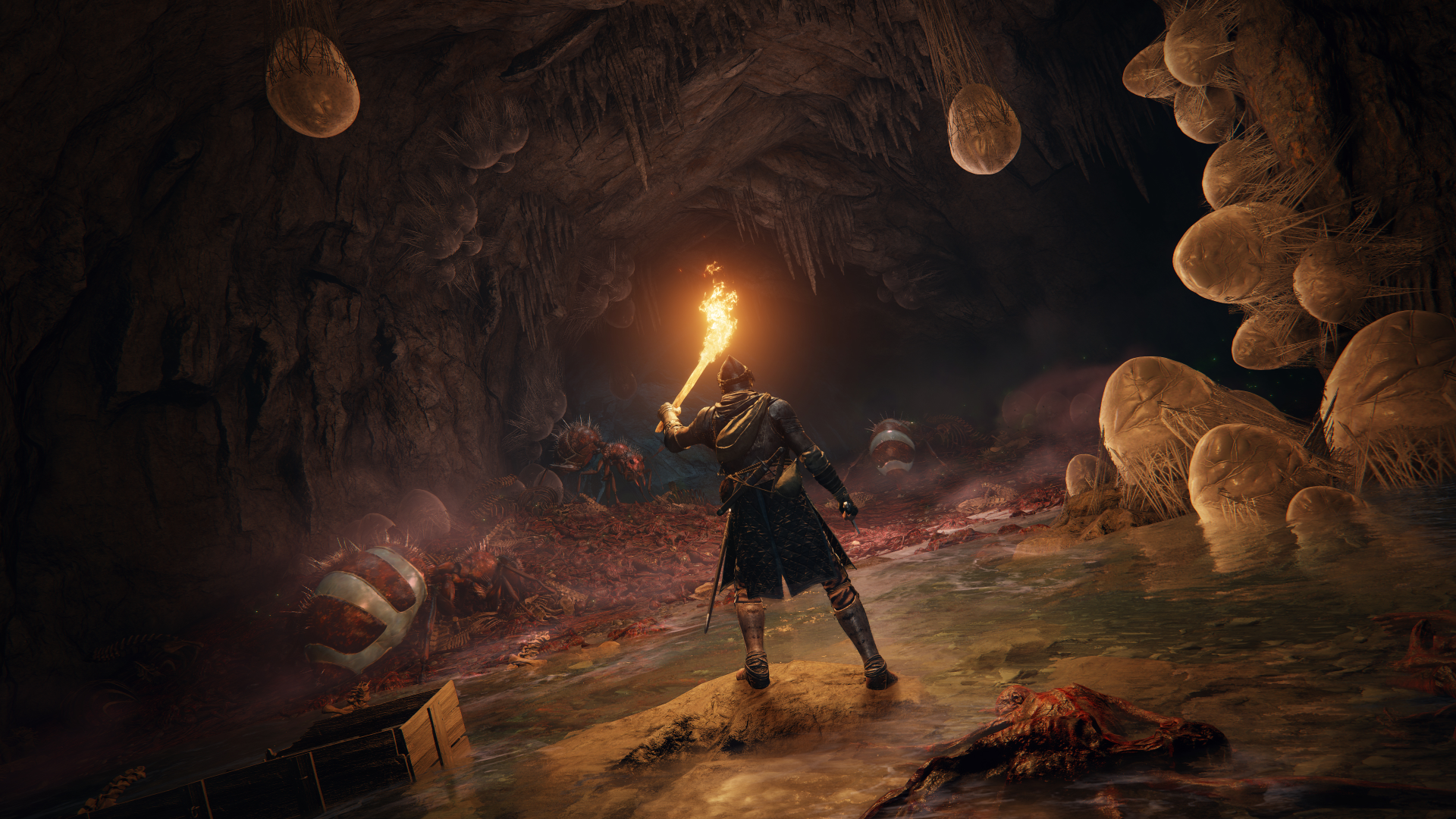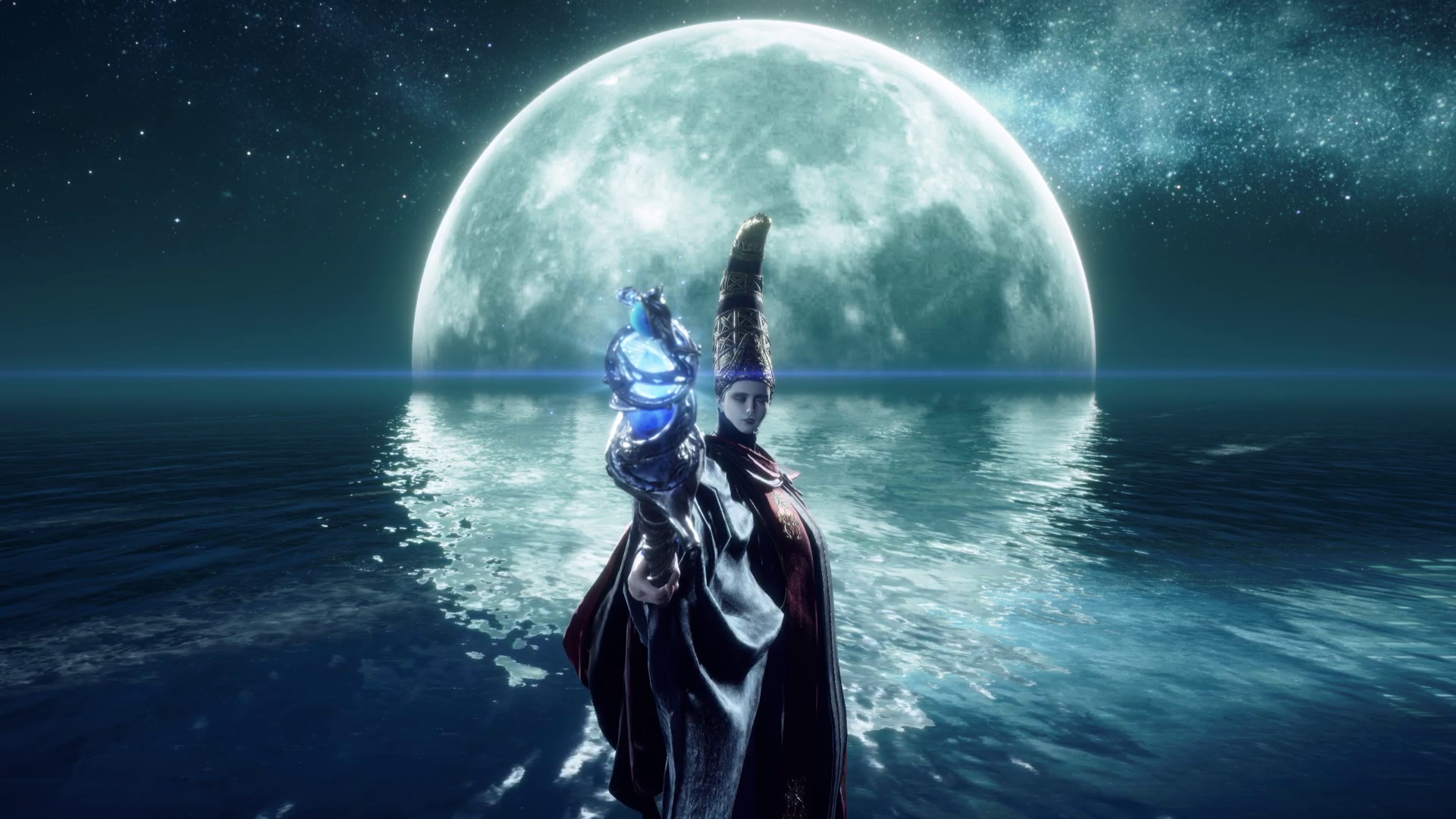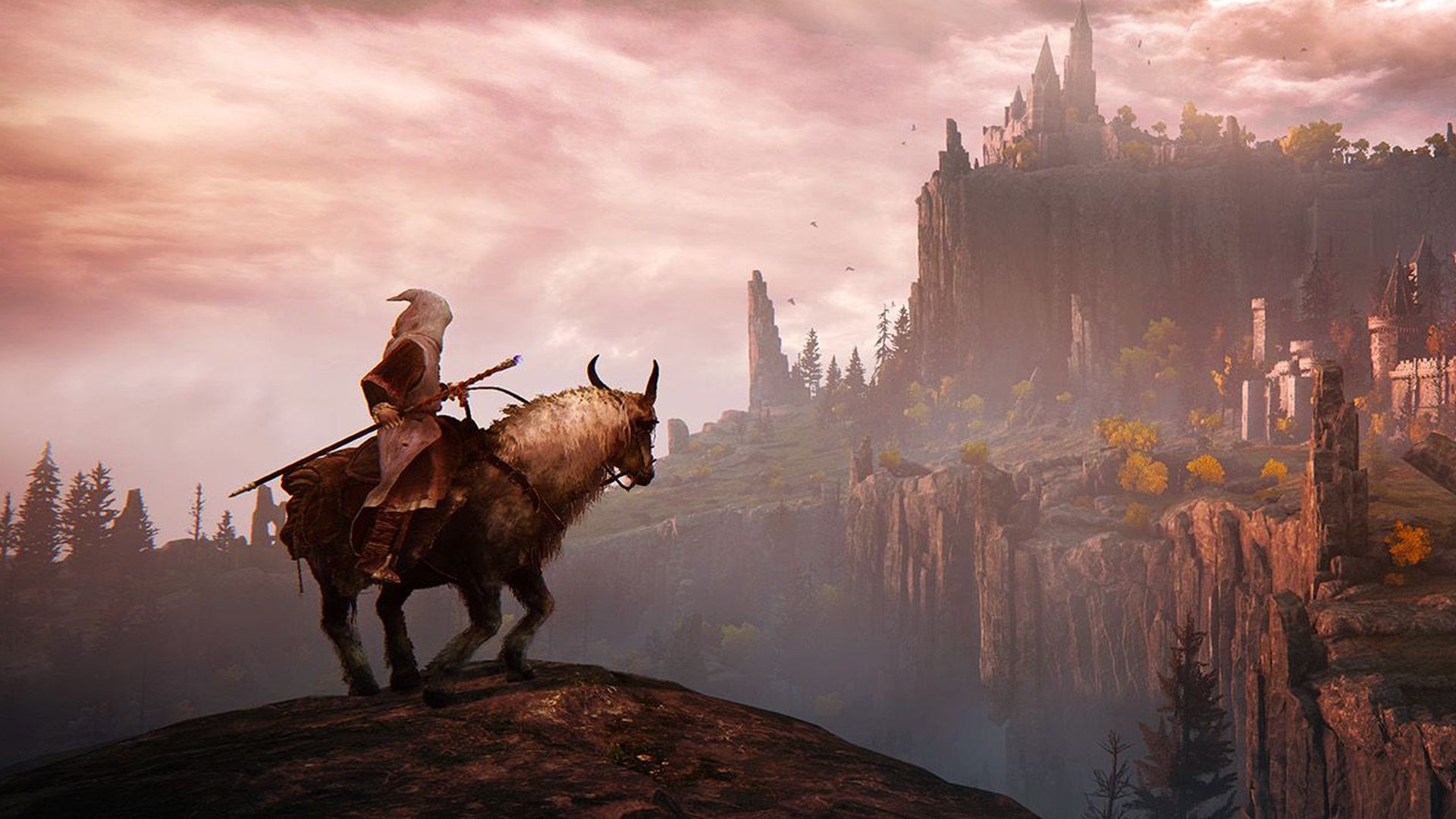FromSoftware's appeal for no Elden Ring spoilers isn't in the spirit of its games
'Keep the secrets' is a marketing angle as old as Agatha Christie

A few days before Elden Ring came out, FromSoftware appealed to its fans for quiet – like a compère hushing the audience of a stage show about to start.
"Greetings, Tarnished," the developer said. "With the release of Elden Ring promptly approaching, please be mindful of spoilers for those who wish to experience The Lands Between for the first time with unclouded eyes. Thank you for your kind cooperation."
It's a simple enough request – or would be, for any other big budget action game. In the case of Elden Ring, it's more of a prompt for philosophical debate. What constitutes a spoiler in a Soulslike? FromSoftware's games are not driven by plot twists, dialogue drama, or conventional character development of the kind you might find in a Horizon Forbidden West or Dying Light 2. Ask a player even 50 hours into Elden Ring what's happening in its world and they'd be hard pressed to give you a straight answer.
Games in this lineage are uniquely, and notoriously, opaque – fundamentally, an attempt by director Hidetaka Miyazaki to recreate the sensation of attempting to read English language fantasy novels as a child, filling the yawning gulf in his understanding with stories of his own imagining. Storytelling in Elden Ring and the Souls series is delivered through snatches of cryptic, contextless conversation, coupled with history gleaned from item descriptions, as well as clues baked into the very shape of the world.
Lore-dran

Piecing together the bigger picture has long been a community effort. In fact, an entire YouTube culture has sprung up to provide the codex that FromSoft would never write. Lore explainers from leading lights like VaatiVidya often run to half an hour and are interpolated with timestamped questions: What is Hollowing? Why is Time Convoluted? What is the Painted World? They are watched by millions, a cottage industry built on mystery.
In other words, it's very difficult to have Elden Ring's story spoiled for you; fans have to go out of their way to even wrap their heads around it. Once they do, they're typically grateful to have a scholar's understanding bestowed upon them, enriching the experiences they've already had.
Of course, games can be spoiled without any mention of their plot. Hearing about a late-game mechanic can rob you of a spectacular moment of surprise; publicizing the outcome of a problem can prevent others from coming to their own solutions. But here, too, Elden Ring bucks the norm.
Sign up to the GamesRadar+ Newsletter
Weekly digests, tales from the communities you love, and more
Its much-debated difficulty presents walls so seemingly-insurmountable that, for many players, any helping hand is welcome. What might in another game feel like cheating – consulting a guide, or watching a video of a master at work – instead becomes a collective effort to overcome a common foe. Over the last few days writing news at GamesRadar+, we've basically become a Public Service Announcement system for life-saving discoveries: you can use Rainbow Stones to avoid fall damage; the Beast-Repellent Torch also works on dogs; you shouldn't hug the lady, it's bad for you.
It's an approach encouraged by the messages that FromSoftware has enabled players to embed into its worlds for a decade. Though composed from a limited vocabulary, these communiqués can be both clear and specific. Is a warning that an enemy is going to jump out at you when you turn the next corner a spoiler? Almost certainly. But it's part of the very fabric of Elden Ring, woven into the carpet.
Patch work

Besides, spoilers don't necessarily make Elden Ring easier. Fielding advice from fellow players is a game in itself, in which you attempt to assess the information's legitimacy – considering the possibility that it's designed to trip you up instead. Bogus help is such a popular sport among Soulslike fans that it dribbles out onto social media, where it's consumed gleefully by players in the know. Such trickery comes naturally to friends of Patches, the recurring poltergeist of the Souls games.
If you've not played a game like Elden Ring before, it can be intimidating starting out as a new player! The game may seem punishing or too hard, but once you've got to grip with the basics it's hugely satisfying - here's a spoiler-free guide to getting started:March 1, 2022
Does FromSoftware really want an end to all this? Surely not. It's the sort of player behavior the studio has nurtured for many years, finally in full bloom. So what did the studio mean to do, when it asked players to be mindful of spoilers?
Perhaps it meant to tap into a long history of marketing that, counterintuitively, revolves around not spreading the word. It's particularly prevalent in theater, where the makers of West End hit Harry Potter and the Cursed Child have implored audiences to #keepthesecrets – printing the message on tickets and badges handed out to preview attendees.
It's a tantalizing tagline. Nothing piques interest like throwing a curtain around a story – an act that suggests something really juicy hidden behind the veil. But it's not a new trick. Consider London's longest-running West End show, The Mousetrap. Agatha Christie's murder mystery opened in 1952, and the audience has traditionally been asked to leave the details of its twist ending within the walls of St Martin's Theatre. It's been playing for so long that only one prop survives from that first showing – the mantelpiece clock – and many of The Mousetrap's original viewers must, by now, have taken its spoilers to their graves.
Keeping the secrets hasn't been such a prevalent marketing device in other mediums, but there are signs that it is spreading. While cinema-goers have long taken a laissez faire attitude to spoilers – you're more likely to know the twist of The Sixth Sense than to have seen it – the serialization and shock crossovers of the Marvel universe has started to change things. The release campaign of Spider-Man: No Way Home was characterized by cagey actors carefully talking around an unconfirmed but obvious secret, and since it came out, fans have derived as much enjoyment from clips of Tom Holland lying badly at press junkets as from the film itself.
Games, then, might be the next frontier. Was FromSoft really worried that fans spilling Elden Ring's secrets might ruin their years of hard work? Probably not. But the studio might have suspected that, by asking fans to keep the secrets, it could sell a few more copies.
If FromSoftware's latest doesn't appeal, you could also try one of the best games like Elden Ring.
Jeremy is a freelance editor and writer with a decade’s experience across publications like GamesRadar, Rock Paper Shotgun, PC Gamer and Edge. He specialises in features and interviews, and gets a special kick out of meeting the word count exactly. He missed the golden age of magazines, so is making up for lost time while maintaining a healthy modern guilt over the paper waste. Jeremy was once told off by the director of Dishonored 2 for not having played Dishonored 2, an error he has since corrected.



